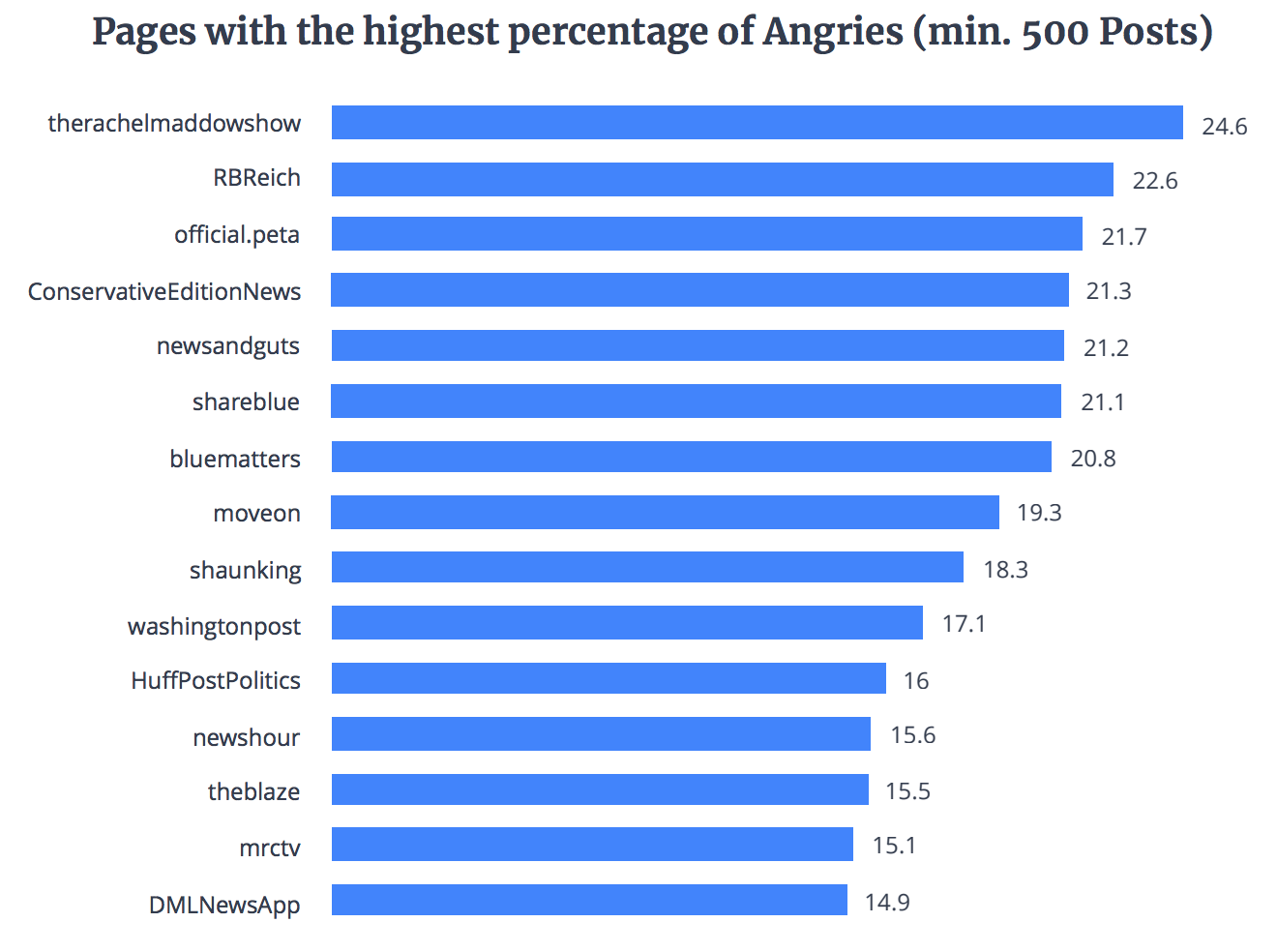
The growing stream of reporting on and data about fake news, misinformation, partisan content, and news literacy is hard to keep up with. This weekly roundup offers the highlights of what you might have missed.
Liberals are angry online too. Arash Barfar of the University of Nevada, Reno, analyzed comments on political Facebook posts and found that posts on hyperpartisan Facebook pages received “significantly less analytic responses from Facebook followers” than mainstream news sites did, with “greater anger and incivility” appearing in the comments on far-left sites.
Barfar looked at nearly Facebook posts from a set of hyperpartisan sites — Addicting Info, AlterNet, Breitbart, Conservative Tribune, Daily Kos, Newsmax, Occupy Democrats, RedState, The Blaze, and The Daily Caller — and compared the comments on them to posts from the AP, BBC News, Bloomberg, NPR, Reuters, Politico, The Hill, The New York Times, The Wall Street Journal, and The Washington Post. (Throughout the paper, he describes the hyperpartisan sites as “political disinformation sites,” which I found to be a confusing umbrella term; in the excerpt below I swapped out “hyperpartisan” or “content” for “disinformation.”)
Our results indicated that user responses to extreme liberal [hyperpartisan content] in Facebook were filled with greater anger and incivility. Furthermore, while Nithyanand et al. (2017) found that Democratic political discourses in Reddit were more linguistically complex than Republican ones, our results indicated no significant difference in cognitive complexity between responses to extreme conservative and liberal [content] in Facebook.
However, we should note the differences in context and timing between our study and Sobieraj and Berry (2011) and Nithyanand et al. (2017). First, Sobieraj and Berry (2011) and Nithyanand et al. (2017) studied political discourses in media outlets (e.g., cable news) and Reddit respectively, whereas our work studied user responses to extreme conservative and liberal [content] in Facebook. Furthermore, Sobieraj and Berry’s (2011) findings concern the spring of 2009 — right after Obama’s presidential term started, which could partly explain the outrage in the right discourse. On the other hand, Nithyanand et al. (2017) results pertain to the period of May 2016 to May 2017, half of which concerned the 2016 US presidential elections while Democrats were still in the White House. By contrast, our data belongs to February 2018, more than a year after Donald Trump came into power despite all polls, which may explain the outrage, offensive language, and anxiety in responses to extreme liberal [content] in Facebook. In summary, we suspect one cannot attribute the incivility and outrage in online political discourses (at least in [hyperpartisan political] pages in Facebook) to a specific political party without considering the timing and concurrent political events.
NewsWhip’s most recent report, about Facebook activity in the second quarter of 2019, also took at “angry” reactions.

While Fox News still gets the most “angries,” OccupyDemocrats is #2 — and you’ll notice plenty of traditional media outlets here as well. It’s also liberal Rachel Maddow’s page that includes the most “angry” reactions as a proportion of all post reactions, with the page of Berkeley professor and former Bill Clinton secretary of labor Robert B. Reich at #2.

Overall, NewsWhip found that though “angry” reactions feature prominently on political pages, “they basically don’t register as a reaction among the top posts, with less than one percent of the reactions to the top 10,000 posts being an Angry.”